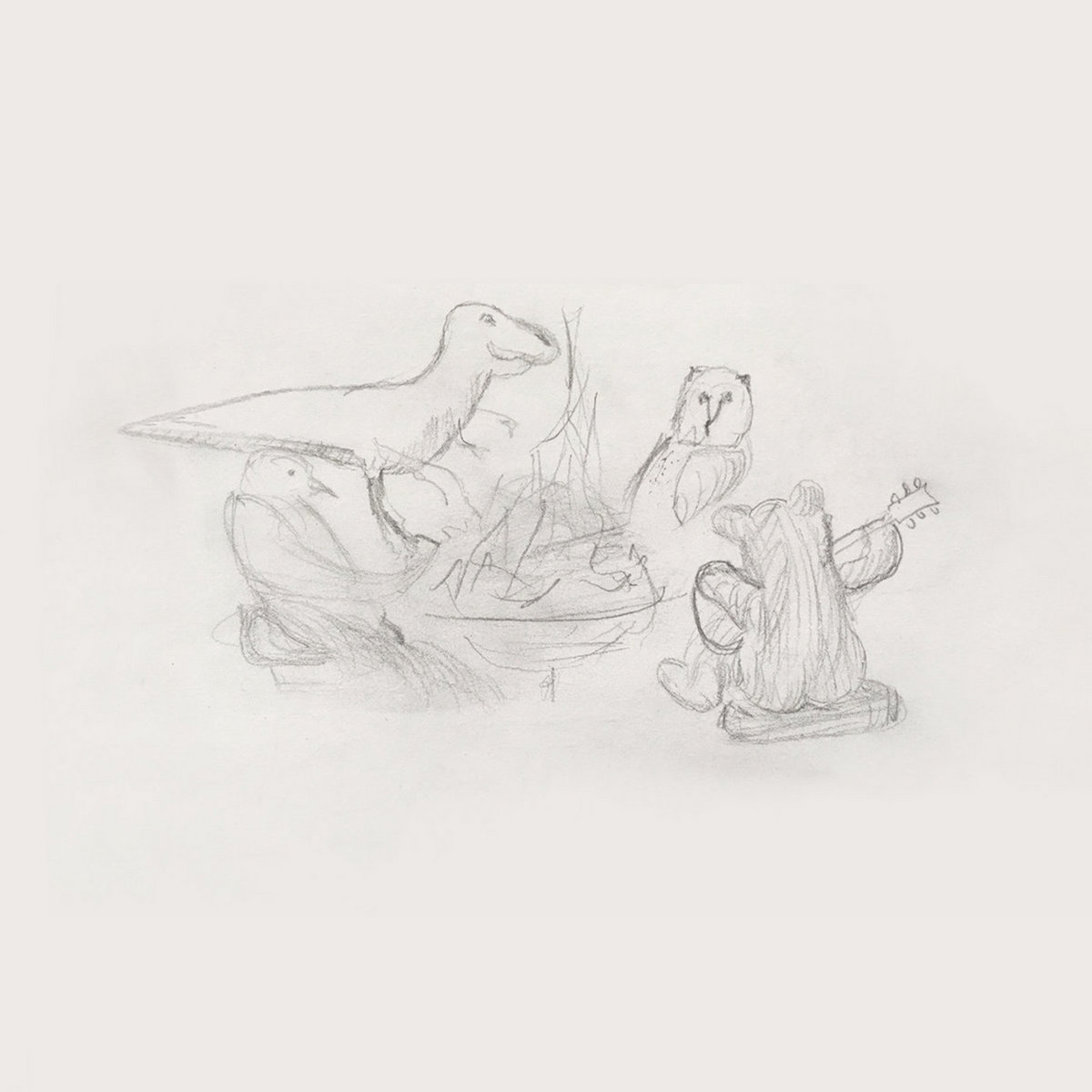Big Thief
Dragon New Warm Mountain I Believe in You
4AD
ABOVE THE CURRENT
Big Thief is either a riddle wrapped in a mystery inside an enigma or the simplest band in the world. They have either purposefully wrong-footed the contemporary music community time and again, or they’re so unaware of the conversation surrounding the band that they couldn’t possibly act in response. They’re either so tactile and grounded as to grow roots, or completely untethered, buoyant, and delicately floating inches above the people underneath. Either way, they’ve made another masterpiece with Dragon New Warm Mountain I Believe in You, a true barn-burner of a record as essential as it is beguiling.
Never a band to be described as small, this is a record of epic proportion. Recorded over two years, in four locations, with four different engineers, and containing 20 songs at over 90 minutes, Dragon is as comprehensive as its title is a mouthful. This scope was the brainchild of drummer James Krivchenia, who took over production duties from longtime Big Thief collaborator Andrew Sarlo. His goal was to somehow encapsulate the full breadth of Adrianne Lenker’s songwriting, something he felt they hadn't accomplished in totality on any of their previous records. For context, Lenker, who also releases music under her own name, dropped 35 songs in total from 2019 to 2021—and still, Krivchenia felt nothing before had been able to contain all that Lenker has to offer. He was right. Dragon contains a river of ideas, flowing along at speeds both breakneck and lazy, casually diverting into streams and creeks, fully assured of the final destination. It appears that the best way to capture Lenker’s songwriting talent was to let it flow unrestrained.
Ultimately it’s unclear how much of an effect Krivchenia’s geographical gimmick had on the album’s final product. Dragon is such a big, gangly thing as to be hard to wrangle into neat sonic qualifiers, but one recording session does stick out, if only for its peculiarities. The last session of the album took place in Tucson, Arizona with the help of Dr. Dog vocalist Scott McMicken and, perhaps more importantly, the addition of Mat Davidson of the experimental folk project Twain. Here, Davidson essentially becomes the band’s fifth member, providing everything from back-up vocals to fiddle and accordion. As you might expect, this ends up being the most homespun set of songs, Big Thief’s foray into Comes a Time–era Neil Young. Most of these songs come on the album’s final third, the exception being “Spud Infinity,” one of the most extraordinary songs the band has ever written. In and of itself a justification of Krivchenia’s ploy to draw something new out of Lenker, “Spud Infinity”' is a playful, often nonsensical romp. “From way up there it looks so small, from way down here it looks so small,” sings Lenker, both acknowledging and deifying the absurdity at the song's core.
Does “Spud Infinity,” or Dragon as a whole, sound like Big Thief? The better question might be how they could possibly not sound like Big Thief. “We don’t need to be anything. If things sound weird, or funny, or bad, then that’s how it sounds,” said Lenker during their recent Pitchfork interview. And that’s sort of always been the case. Ever since their debut Masterpiece they’ve been a band open to stretching their folk-rock template. This record might skirt further toward the edges, but it's not as if this was a band who ever painted by the numbers. You can even hear bits of the title track from their last record, Two Hands, within Dragon standout “Time Escaping,” its circular, haphazard structure more an evolution than a reinvention. Alternatively, a song like “Heavy Bend” does genuinely sound unlike anything the band has ever produced, yet still wholly grounded. Integrating the finger-picking style of Lenker’s recent solo work, it’s both an excellent mid-album diversion and a kernel of an idea the band could surely flesh out in the future.
But where Big Thief goes from here, where they’ve been, seems of little concern to the band themselves. This is a group that’s both relatively popular and critically acclaimed, yet seemingly uninterested in engaging with the triviality that might come with such a combination. Lenker, specifically, is an enigmatic figure. Lyrically, she’s never been interested in topicality, but with Dragon she widens the scope even further. For other bands, a song titled “Change” opening a magnum opus of a record could be identified as winking self-commentary—but for Lenker and company the concern is far more cosmic. When she sings of “death like a suitcase,” it has nothing to do with Big Thief as a band and everything to do with Adrienne and Buck and James and Max as people.
Of course, when things trend toward these grand ideas, it can be difficult to discern any kind of thematic glue holding the album together. Hearing the band originally had 45 songs prepared only confirms the record's scattershot nature, especially when compared to their more focused work in the past. But ultimately, any complaint of too much Big Thief is a porous one, lack of focus be damned. Removing a handful of songs might not crumble the narrative structure of the record they ended up with, but the consistency with which they deliver surely makes that point moot. Dragon might not be an exacting self-contained statement, but it is as essential as anything the band has ever produced.









